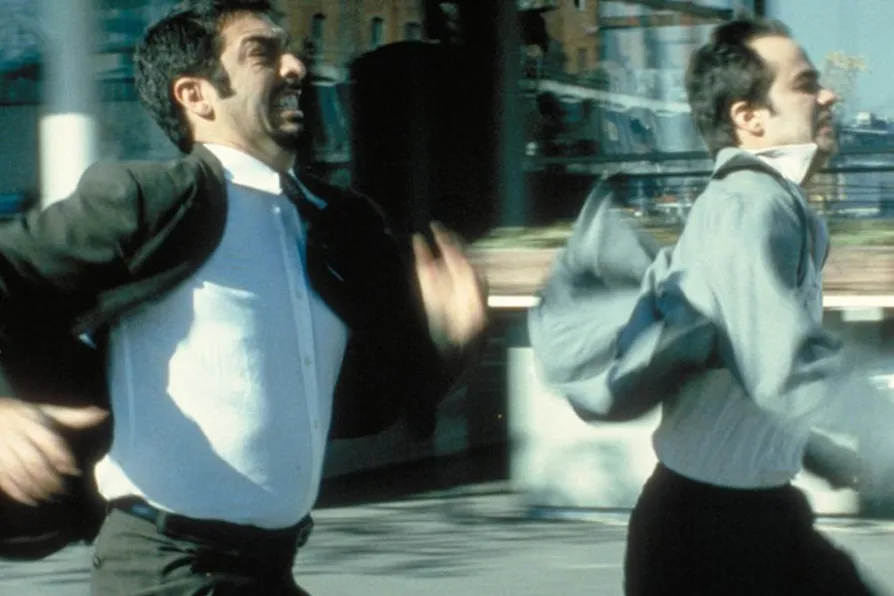SIMON PARSONS applauds an artist who rescues and rehumanises stories of women, the victims of violence, from a feminist perspective
JOHN GREEN recommends an Argentinian film classic on re-release - a deliciously cynical tale of swindling and double-cross

 SLIPPERY SLOPE: Ricardo Darin and Gaston Pauls in Fabian Bielinsky's classic crime drama Nine Queens [Pic: IMDb]
SLIPPERY SLOPE: Ricardo Darin and Gaston Pauls in Fabian Bielinsky's classic crime drama Nine Queens [Pic: IMDb]
Nine Queens (15)
Directed by Fabián Bielinsky
★★★★★
NINE QUEENS, considered an Argentine film classic, was made in 2000 by the late Fabian Bielinsky. It is a clever heist drama, with references to various French and Hollywood classic crime dramas. It stars Ricardo Darin as Marcos and Gaston Pauls as his sidekick, Juan, and both give exquisite performances. It combines gangster slapstick, wry humour and subtle social commentary. A master class in double dealing.
Con-artist Marcos unexpectedly teams up with neophyte Juan to sell counterfeit rare stamps to a wealthy foreign collector. And the drama plays out against the background of Argentina’s 1998–2002 Great Depression. Following 15 years of stagnation, and then a period of IMF-imposed neoliberal austerity measures, the country suffered severe economic and social disruption. With rising inequality, poverty and desperation as a result of IMF dictates and local corruption the country is made bankrupt. It shows how a society falling apart turns almost everyone into a criminal. It is a deliciously cynical tale of swindling and double-cross, with a convoluted storyline and a surprising denouement, revealing to the audience that it has been taken for a ride too.
The cinematography is also first class, with long takes, alternating with short close-ups, almost every image conveying a deeper meaning beneath the surface patina. Choreographed scenes alternate with documentary-like crowd scenes, amplifying the sense of a genuine social ambience, and a world whose foundations are crumbling into unexpected hostility.
Marcos, the hard-bitten conman, notices wannabe trickster Juan clumsily trying to pull off a petty scam at a petrol station and persuades him to join him as a duo. They think they have discovered a way to make a fortune by selling a fake rare set of stamps from Weimar Germany called the “Nine Queens” to a crooked businessman with a passion for philately. This nod to Germany’s 1923 catastrophic hyperinflation would not have been lost on an Argentinean audience.
The wealthy collector offers $450,000 for the stamps, with the exchange to take place that same evening. The fake stamps are, however, stolen by thieves on a motorbike who, unaware of their potential value, toss them into a river. However the two then manage to get hold of the real stamps.
The collector pays for these with a certified cheque. Attempting to cash it at the bank, the two con-men meet an angry crowd of creditors demanding their money, but the bank has already gone bust due to management fraud, making the cheque worthless.
I won’t spoil the surprise ending for you. You’ll just have to watch the film.
A fast-paced cliffhanger with a valid social message.
In cinemas now and on Blu-ray August 11

The Star's critics ANGUS REID, MICHAL BONCZA and MARIA DUARTE review Hot Milk, An Ordinary Case, Heads Of State, and Jurassic World Rebirth

Borrowed Time: Lennon’s Last Decade, Parthenope, Where Dragons Live and Thunderbolts* reviewed by MICHAL BONCZA and MARIA DUARTE












